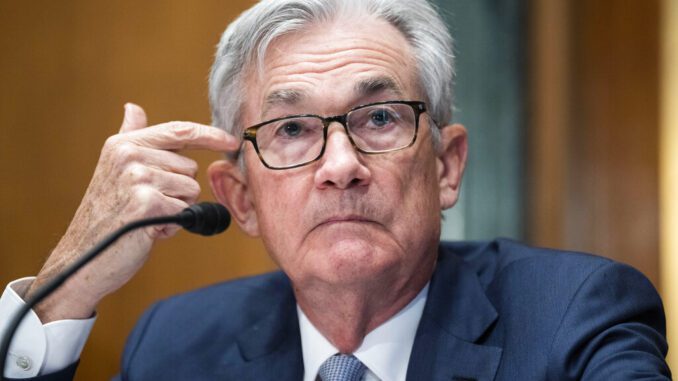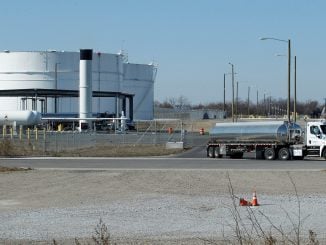
WASHINGTON, D.C. — The Federal Reserve must move faster than it has in the past to rein in high inflation, Chair Jerome Powell said Thursday, signaling that sharp interest rate increases are likely in the coming months, beginning at the Fed’s next policy meeting in May.
In a panel discussion held by the International Monetary Fund during its spring meetings, Powell also suggested that “there’s something in the idea of front-loading” aggressive rate hikes as the Fed grapples with inflation that has reached a four-decade high.
“So that does point in the direction of (a half-point rate increase) being on the table” for the Fed’s policy meeting May 3-4, Powell said. Typically in the past, the Fed has raised its benchmark short-term rate by more modest quarter-point increments. When the Fed raises its rate, it often leads to higher borrowing costs for people and businesses, including those seeking to borrow to buy homes, cars and other costly goods.
Wall Street investors already expect the Fed to raise its key rate by a half-point at its next three meetings, including those that will occur in June and July. Powell’s comments Thursday underscored those expectations.
That would be the fastest tightening since 1994, when the Fed raised its rate by 1.25 percentage points over the course of three meetings.
By contrast, Christine Lagarde, president of European Central Bank, who took part in Thursday’s discussion, sounded a much more cautious note. Inflation in the 19 countries that use the euro reached 7.5% last month, compared with a year earlier, the highest level since records began in 1997.
Yet Europe’s economy faces a greater threat from Russia’s invasion of Ukraine, which has sent food and particularly energy prices on the continent soaring and has weighed more on its economic growth than in the United States.
Lagarde said the ECB, at its next meeting in June, would decide when to end its program of bond purchases, which are intended to lower long-term interest rates. The Fed completed a similar effort in March. The ECB has set the July-September quarter as a target to stop buying bonds but hasn’t been more specific.
One reason for Lagarde’s caution, she said, is that about half of Europe’s inflation is driven by high energy prices. Typically, interest rate policies can do little about such supply shocks.
“Our economies are moving at a different pace,” Lagarde said, referring to Europe and the United States, where growth has been faster. “Our inflation is fed by different components.”


